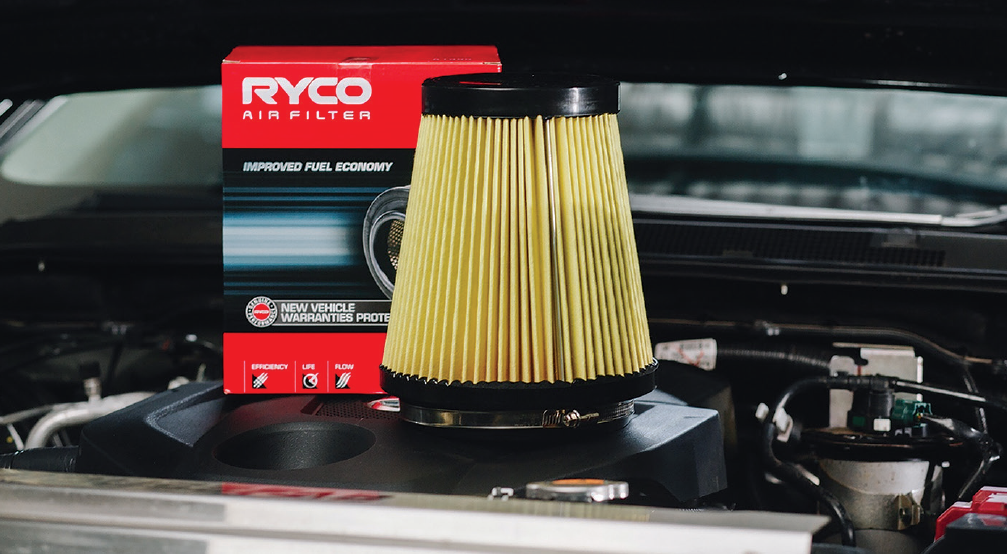Most of the time, an engine’s air filter maintenance is relatively simple – replace the air filter at a pre-determined interval and set and forget until it is up for its next replacement.
However, replacement intervals set by the manufacturer only account for regular road use and when you start venturing off-road, things get a little bit more complicated. Your vehicle’s air filter acts as the lungs of the engine, filtering out any particles in the air that cause premature engine wear and damage. Once you’re dealing with things like sand and dusty roads, your air filter starts working a lot harder to keep your engine protected.
First and foremost, if your 4WD is seeing a lot of use off-road, the best thing you can do is give your air filter regular checks, especially after a hard day on a dusty track. It’s good practice to open up your intake airbox after every trip and monitor what’s going on inside. Across most 4WDs, this is a relatively simple process that should only take a couple of minutes. If it’s taken in enough dust, you’ll want to replace it with a fresh air filter. A clogged air filter chokes your engine of air and can lead to excessive fuel consumption and a lack of power. If it’s not up for replacement just yet, give the airbox a clean and remove any dust or debris.
It’s also important to make sure that your intake system is sealed properly. Rubber or plastic hosing ages over time and can become brittle and crack. Regularly check your intake hoses for any splits or cracks and replace them where necessary. Ensure as well that your air filter is sealing properly inside the airbox. If you notice any dust on the clean side of the airbox, chances are it’s getting in around the filter as opposed to through the filter. Ensure that your air filter is installed correctly and that the seal isn’t twisted or damaged. You’ll also want to look out for the condition of your airbox. Make sure that the clips or screws holding it closed are tight and that the airbox doesn’t have any damage that could be letting in dust.

Another thing to consider is fitting your 4WD with an intake snorkel. Whilst these are usually associated with water crossings and keeping water from destroying your engine, they can also help preserve the life of your air filter. When you’re out on those dusty tracks, raising the intake height from the engine bay to your 4WD’s roof allows the engine to breathe in much cleaner air from an area where far less dust is present. While you’re at it, fitting a snorkel sock is also a good preventative measure when you’re dealing with dust. These can be easily removed as well when it comes time for a replacement.
If you’re out 4WDing in a convoy, you should also consider your driving style. 4WDs in front can create a much bigger dust cloud than what you might have to deal with if you were out on your own. It’s important to leave a sizeable gap from the vehicle in front to keep yourself from driving within that dust cloud. Otherwise, you might find your air filter quickly getting clogged with dust.
Most importantly, it’s vital that you fit your 4WD with a high-quality air filter like one from Ryco. A low-quality air filter can be detrimental to your engine, especially when it comes time to deal with dusty conditions. Ryco air filters are designed to meet or exceed OE specifications and feature excellent dust-holding capacity. Ryco air filters are available for a wide range of 4WDs. If you’re up for a new air filter for your 4WD, head to your nearest Ryco stockist today.
Find more information on Ryco Products visit: https://rycofilters.com.au


